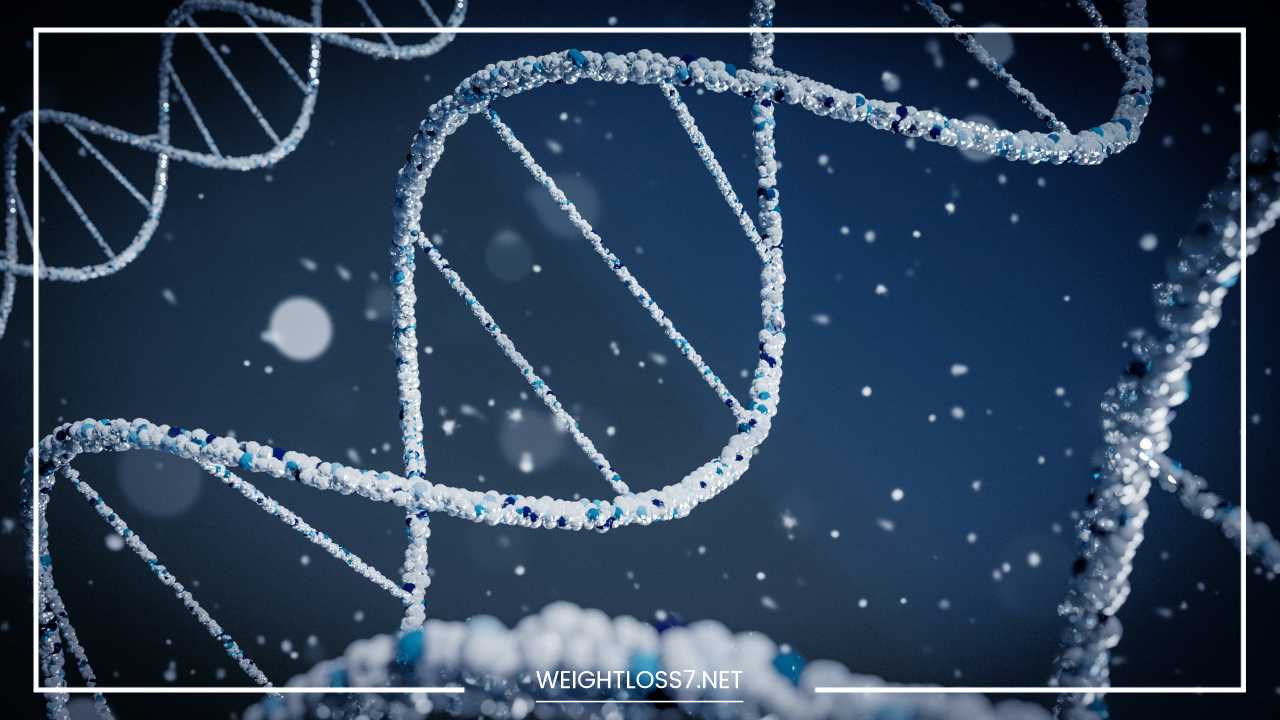DNA Testing Guide: Ancestry, Health & More

DNA Testing
Unveiling Your Story: A Comprehensive Guide to DNA Testing in the 21st Century
DNA testing has become a cultural phenomenon. No longer confined to science labs and crime dramas, it’s now a readily available tool for consumers seeking to unlock the secrets hidden within their genetic code. This explosion in popularity raises a plethora of questions:
What exactly is DNA testing? What information can it reveal about our ancestry, health, and even ourselves? Most importantly, how can we navigate this exciting yet complex frontier of self-discovery?
This comprehensive guide delves into the fascinating world of DNA testing in the 21st century. We’ll explore the science behind it, unveil the different types of tests available, and discuss the potential benefits and considerations involved.
Demystifying the Code of Life: A Journey into DNA
Our bodies are composed of trillions of microscopic marvels called cells. Within each cell lies deoxyribonucleic acid, or DNA – the blueprint of life.
This complex molecule carries the genetic instructions passed down through generations, dictating everything from our eye color and hair texture to our susceptibility to certain diseases.
DNA resembles a twisted ladder, with each rung formed by paired chemical units called nucleotides. These nucleotides come in four varieties – adenine (A), thymine (T), cytosine (C), and guanine (G).
The specific sequence of these nucleotides forms our unique genetic code, like a personal instruction manual. It’s this intricate sequence that determines our physical traits, our predispositions to certain health conditions, and even aspects of our behavior influenced by genes.
Unveiling Your Ancestry: A Voyage Through Time
Ancestry DNA testing analyzes your DNA to trace your origins back to your ancestral populations. By comparing your genetic markers to reference populations worldwide, these tests can estimate the percentage of your DNA that comes from various regions like Europe, Africa, or Asia.
The accuracy of ancestry tests is constantly improving as reference databases expand and technology advances. However, it’s crucial to understand that these tests provide estimates, not definitive pronouncements.
Historical events like migration and population mixing can make pinpointing exact origins challenging. Here’s a deeper dive into some key considerations with ancestry testing:
- Reference Populations: The accuracy of results heavily relies on the completeness of the reference databases used by the testing company. Look for companies with diverse reference populations representing a wide range of ethnicities worldwide.
- Limitations: Ancestry tests don’t reveal specific cities or towns of origin. They paint a broad picture of the ancestral populations that contributed to your genetic makeup.
- Privacy Considerations: Before taking a test, carefully review the company’s privacy policy regarding data sharing and research participation. Be sure you understand how your genetic information will be used and stored.
Unlocking the Secrets of Health: Understanding Your Predispositions
DNA health tests analyze your DNA for variants associated with increased risks for certain diseases. This information can empower individuals to take a proactive approach to their health.
By understanding their genetic predispositions, they can make informed lifestyle choices and discuss preventative measures with their healthcare providers.
Here’s a breakdown of some key points to consider with DNA health testing:
- Risk Assessment, Not Certainty: A genetic variant doesn’t guarantee you will develop a specific disease. It simply indicates an increased risk compared to the average population.
- Focus on Modifiable Risks: DNA health tests are most valuable for conditions where you can take action to mitigate risk. This could involve changes in diet, exercise routines, or early screening for specific diseases.
- Medical Guidance is Crucial: Don’t interpret your DNA results in isolation. Discuss them with a qualified healthcare professional who can provide personalized advice based on your complete medical history and lifestyle.
Beyond Ancestry and Health: The Expanding Universe of DNA Testing
The applications of DNA testing are constantly evolving. Here’s a glimpse into some exciting emerging areas:
- Carrier Screening: This helps identify individuals who carry genes for recessive genetic disorders before they have children. This allows couples to make informed decisions about family planning and potentially seek genetic counseling.
- Nutrition and Fitness DNA Testing: This analyzes your DNA to personalize diet and exercise plans based on your genetic predispositions. While still in its early stages, this field holds promise for optimizing individual health and fitness strategies.
- Pharmacogenomics: This examines how your genes influence your response to medications. This information can lead to more targeted treatment approaches, potentially improving treatment efficacy and reducing side effects.
Making Informed Choices: Navigating the DNA Testing Landscape
Before embarking on your DNA testing journey, consider these important factors:
- Purpose: Clearly define what you hope to learn. Are you curious about your ancestry, health risks, or something else entirely? Understanding your goals will help you choose the right test.
- Testing Companies: Research different companies and their offerings. Compare testing platforms, pricing structures, and data privacy practices. Look for companies accredited by reputable organizations and offering detailed reports with clear explanations.
- Data Privacy: Understand how your data will be used and stored. Choose companies with robust privacy policies that clearly outline your opt-out options and data security measures. Be aware that genetic information is considered sensitive, so choose companies you trust.
- Genetic Counseling: Consider genetic counseling if you have concerns about interpreting test results or their implications for your health. A genetic counselor can provide a personalized risk assessment, explain complex genetic concepts, and offer emotional support throughout the process.
The Ethical Considerations: A Thoughtful Approach
DNA testing is a powerful tool, but it comes with ethical considerations. Here are some important points to ponder:
- Privacy Concerns: Once you share your DNA with a testing company, you relinquish some control over how it’s used. While companies are bound by regulations and often have strict policies, be mindful of potential future uses of your genetic information.
- Psychological Impact: Unexpected test results, particularly those related to health risks, can be emotionally challenging. Consider your emotional preparedness before taking a test. Discuss your concerns with a healthcare professional or genetic counselor beforehand.
- Genetic Discrimination: There are legal protections against genetic discrimination in many countries, but loopholes may exist. Be aware of these risks, especially when applying for jobs or insurance. It’s important to remember that your DNA is not your destiny, and employers and insurance companies cannot use genetic information to discriminate against you.
The Future of DNA Testing: A World of Possibilities
The field of DNA testing is rapidly evolving, and the future holds exciting possibilities:
- Non-Invasive Prenatal Testing (NIPT): This allows expectant parents to screen for certain fetal genetic conditions through a simple blood test from the mother. This can provide peace of mind and allow for earlier intervention if necessary.
- Personalized Medicine: With a deeper understanding of individual genetic variations, healthcare could become more personalized. Doctors could tailor treatment plans based on a patient’s unique genetic makeup, potentially leading to more effective and targeted therapies.
- Gene Editing: This revolutionary technology holds immense potential for correcting genetic mutations that cause diseases. However, ethical considerations and the potential for unintended consequences remain significant challenges in this nascent field.
Conclusion: Empowering Yourself Through Knowledge
DNA testing offers a powerful window into our ancestry, health predispositions, and potentially, ourselves. While it’s not a crystal ball predicting our future, the information it provides can empower us to make informed choices about our health, lifestyle, and even family planning.
However, it’s crucial to approach DNA testing cautiously and thoughtfully. Understand the limitations, consider the ethical implications, and always seek guidance from qualified healthcare professionals when interpreting your results.
Ultimately, DNA testing is a tool for self-discovery. Used responsibly and combined with other information, it can be a valuable addition on your journey towards a healthier, more informed future.
The Human Story in Your Genes: A Deeper Look at Ancestry
While ancestry testing provides a general sense of your ethnic background, it can’t pinpoint your exact origins or tell you the story of your ancestors. To delve deeper, consider these options:
- Genetic Genealogy: This combines DNA test results with traditional genealogical research methods like historical records and family trees. By analyzing shared DNA segments with other individuals who have tested, you may identify potential relatives and uncover fascinating details about your family’s migration patterns and historical experiences.
- DNA Communities: Many testing companies offer online communities where you can connect with others who share similar DNA segments. This can be a valuable resource for finding relatives, piecing together your family history, and learning more about specific ethnicities.
The Power of Prevention: Proactive Health with DNA Testing
DNA health testing can be a valuable tool for preventative healthcare. Here are some ways to maximize its benefits:
- Early Detection: For certain conditions with a genetic component, early detection is crucial. DNA testing can identify individuals at increased risk, allowing them to undergo earlier and more frequent screenings, potentially improving treatment outcomes.
- Lifestyle Modifications: Understanding your genetic predispositions can empower you to make informed lifestyle choices. For example, if you have a genetic variant associated with an increased risk of heart disease, you might be motivated to prioritize a heart-healthy diet and exercise regime.
- Family Planning: Carrier screening can identify individuals who carry genes for recessive genetic disorders. This information can be crucial for couples planning a family, allowing them to make informed decisions and potentially seek genetic counseling.
DNA Testing and You: Addressing Common Concerns
DNA testing has become increasingly popular, but some concerns remain. Here are some ways to address them:
- Accuracy: No DNA test is perfect, and accuracy can vary depending on the test type, the testing company, and the reference populations used. Be sure to choose a reputable company with high testing standards.
- Misinterpretation of Results: DNA results can be complex, and interpreting them on your own can be challenging. Always discuss your results with a healthcare professional or genetic counselor to ensure you understand their implications for your health.
- Emotional Impact: Unexpected DNA test results, particularly those related to health risks, can be emotionally difficult. Consider your emotional preparedness before taking a test, and have a support system in place to help you cope with any challenging findings.
Additional Resources:
- National Human Genome Research Institute (NHGRI): https://www.genome.gov/
- Genetic Testing Registry: https://www.ncbi.nlm.nih.gov/gtr
- Council of Genetic Counselors: https://www.nsgc.org/
Final Word: A Journey of Self-Discovery
DNA testing offers a unique opportunity to explore your ancestry, gain insights into your health predispositions, and potentially connect with long-lost relatives. However, it’s important to approach this journey with thoughtfulness and caution.
By understanding the limitations, considering the ethical implications, and seeking guidance from qualified professionals, you can leverage the power of DNA testing to empower yourself and make informed choices for a healthier future. Remember, your DNA is a fascinating part of your story, waiting to be unveiled.
This comprehensive guide, along with the additional resources provided, equips you with the knowledge to navigate the exciting world of DNA testing.
As you embark on this journey of self-discovery, remember – the most valuable aspect of DNA testing is the knowledge it provides, empowering you to take charge of your health and explore the rich tapestry of your ancestry.

















